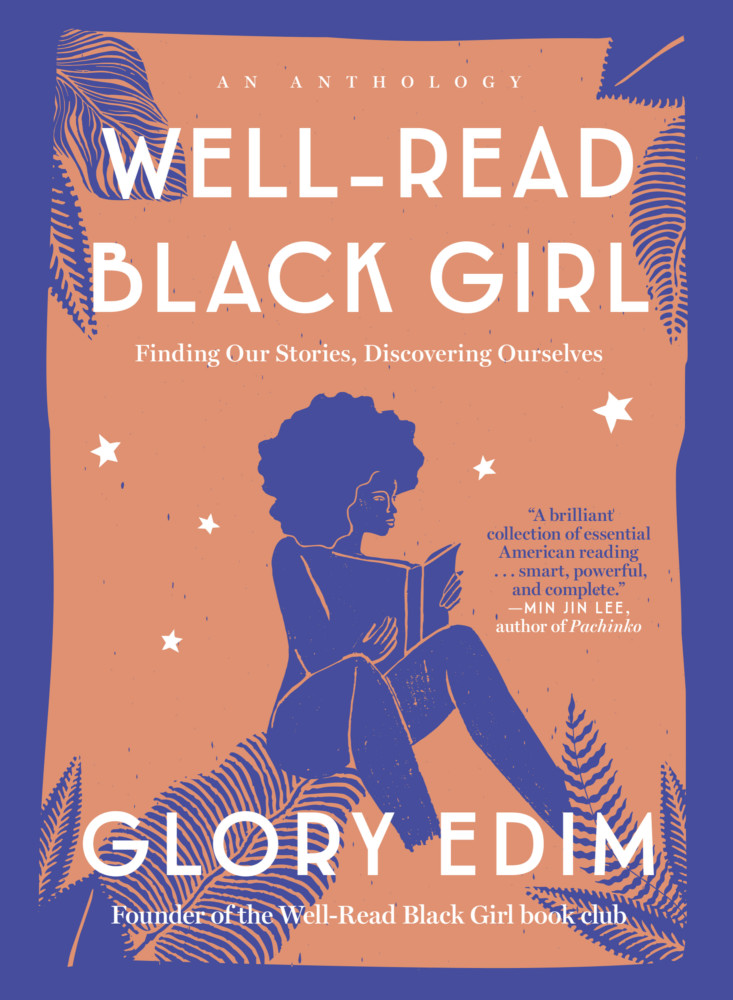By Anjali Enjeti
Newsday
WWR Article Summary (tl;dr) In “Well-Read Black Girl: Finding Our Stories, Discovering Ourselves”, Glory Edim gathers 21 essays from today’s most celebrated authors. The women describe how books from various genres by black women authors empowered them as readers and helped them to see themselves in the world.
Newsday
Glory Edim is an avid reader who always has a book in her hand. Her book habit prompted her partner to design a custom T-shirt for Edim’s 31st birthday with “Well-Read Black Girl,” her birth date and the names of her favorite black women authors emblazoned across the front. Everywhere Edim wore it, African-American women asked her what she was reading. The conversations inspired her to start the Well-Read Black Girl Instagram account in May 2015. A picture of the T-shirt’s design was the first post.
A newsletter and monthly book club discussion soon followed. In September 2017, the inaugural Well-Read Black Girl Festival brought 300 readers to Brooklyn.
In the new anthology she edited, “Well-Read Black Girl: Finding Our Stories, Discovering Ourselves” (Ballantine Books, 272 pp., $20), Edim gathers 21 essays from today’s most celebrated authors, including Tayari Jones, Jacqueline Woodson, Rebecca Walker and Lynn Nottage, describing how books from various genres by black women authors empowered them as readers and helped them to see themselves in the world.
Edim spoke about the book to Newsday by telephone; the interview has been edited for length and clarity.
Q: Were you surprised at how quickly Well-Read Black Girl took off?
A: I would have been content with WRBG just being a monthly book club, newsletter and Instagram account. But then in early 2016, a woman named Ivie Arasomwan (we’ve since become friends) wrote me a letter. “Thank you for being bold, building community, and sharing love without limits. It’s women like you that enhance the legacy of African women in this country and beyond,” she wrote. Letters like Arasomwan’s and the many others I received from black girls and women of all ages made me think, “Wow this is bigger than a book club.” I then began envisioning WRBG as a powerful movement, a significant part of black women’s lineage and inheritance.
Q: Can you comment on the order of the essays in the book?
A: I’m an intuitive reader and writer who tends to go with what feels good for me. When I was reading all of the essays separately, I noticed a common thread. The essays reflect the trajectory of the writer’s life, the moments they go through and how they decide to be committed to their profession beginning with that kind of immersion of self-doubt expressed in Jesmyn Ward’s and Veronica Chambers’ essays, honest origin stories for how they became readers and writers.
Q: In Barbara Smith’s essay, “Go Tell It,” she writes, “As I continued to devour books, I was constantly making adjustments in my mind to account for the distance between me and the white characters, even the ones I liked.” Did you have this experience reading as a child?
A: Barbara Smith had an aunt who was a librarian and other exemplary role models who introduced her to black literature. So many people don’t have that kind of access, though. Even today, I’ll get a letter from a young black girl who will say she can’t find any books reflective of her own experiences. In Ward’s essay, she writes about her disappointment in a children’s books and about how she didn’t see herself in a book until she wrote one herself.
For many black writers, this is our experience. When I read Virginia Woolf and Jane Austen in school I didn’t really question that we were reading mostly white authors, I didn’t even realize I was longing for more black authors. I questioned this much later in life. It’s part of the reason why I attended Howard University, a historically black college.
Q: The second WRBG Festival takes place on Nov. 10. What can attendees look forward to?
A: This year I’m looking at the role of activism in fiction, and how we can use it to inspire and build fortitude with everything that’s happening in the world. We still need to keep a high level of resistance, and I want people to still feel creatively inspired about the work that’s being produced. We’ll be doing a tribute to James Baldwin’s novel “If Beale Street Could Talk” in light of the film’s upcoming release. Patricia Smith is this year’s key note speaker. She’s a truth teller with this essence and presence. She’s the perfect example of the kind of activism we’re building on, bold and uncompromising.














































































































































































































































































































































































